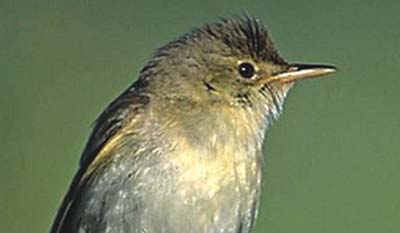 Birds living around the site of the Chernobyl nuclear accident have 5 percent smaller brains, an effect directly linked to lingering background radiation.
Birds living around the site of the Chernobyl nuclear accident have 5 percent smaller brains, an effect directly linked to lingering background radiation.
The finding comes from a study of 550 birds belonging to 48 different species living in the region, published in the journal PLoS One.
Brain size was significantly smaller in yearlings compared to older birds.
Smaller brain sizes are thought to be linked to reduced cognitive ability.
The discovery was made by a team of researchers from Norway, France and the US led by Professor Timothy Mousseau from the University of South Carolina, US, and Dr Anders Moller from the University of Paris-Sud, France.
HARMFUL LEGACY
In April 1986, reactor number four at the Chernobyl Nuclear Power Plant exploded.
After the accident, traces of radioactive deposits were found in nearly every country in the northern hemisphere.
An exclusion has since been set up around the site of the accident.
However, scientists have been allowed inside to gauge the impact the radiation has had on the ecology of the region.
Last year Prof Moller and Prof published the results of the largest wildlife census of its kind conducted in Chernobyl – which revealed that mammals are declining in the exclusion zone surrounding the nuclear power plant.
Insect diversity has also fallen, and previously, the same researchers found a way to predict which species there are likely to be most severely damaged by radioactive contamination, by evaluating how often they renew parts of their DNA.
In their latest study, the scientists used mist nets to collect birds from eight woodland sites around Chernobyl, which have seen a decline in the numbers of larger animals and small invertebrates living within.
After controlling for the differences between species, they found that the birds had brains 5 percent smaller on average compared to birds not exposed to background radiation.
The effect was most pronounced in younger birds, particularly those less than a year old.
That suggests that many bird embryos did not survive at all, due the negative effects of their developing brain.



